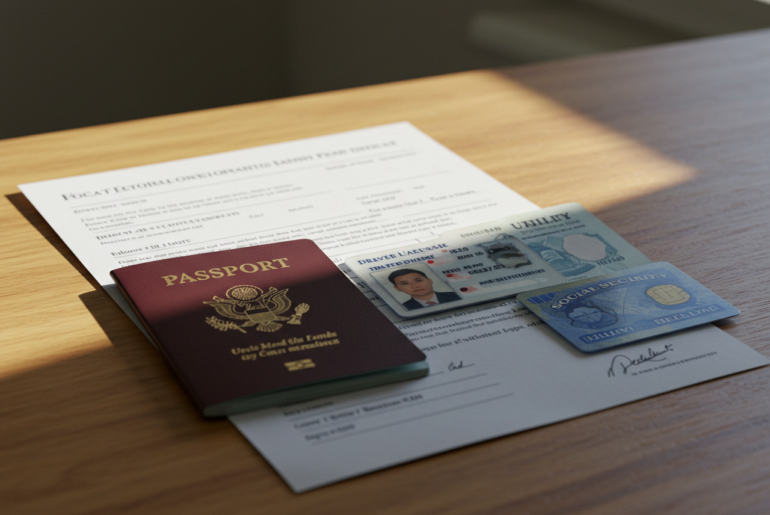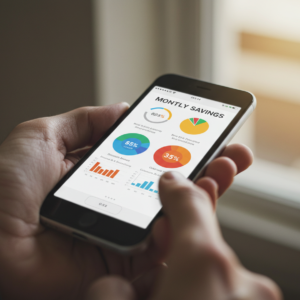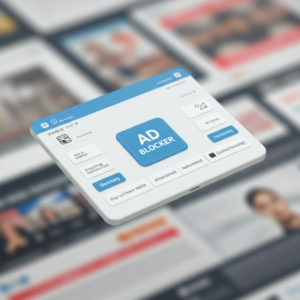Opening a bank account is a significant step toward managing your finances effectively, and it’s crucial to approach this process with a clear understanding of what you’ll need. Whether you’re venturing into the world of banking for the first time or simply looking to switch banks, knowing the requirements can help you smooth the way. From documents to determine your identity, to the types of accounts available, this guide will walk you through the essentials you’ll need to open a bank account successfully. By being prepared, you can make informed choices that best suit your financial goals and lifestyle. Let’s dive into the key requirements so you can confidently take this critical step.
What You Need to Prepare Before Heading to the Bank
Before you step into the bank, it’s essential to gather all the necessary items to make the process as smooth as possible. Being well-prepared not only saves time but also reduces any potential stress. Here’s what you should have on hand:
- Identification: Bring a valid, government-issued photo ID, such as a driver’s license or passport. This is your proof of identity.
- Proof of Address: A recent utility bill or lease agreement can suffice. This verifies where you live.
- Social Security Number: This may be required for tax reporting purposes, so have it handy.
- Initial Deposit: Understand the minimum amount required to open your new account. Some banks may need this to open an account.
Additionally, it’s a good idea to consider the purpose of opening the account. Are you planning to use it for everyday expenses, or are you looking for a savings solution? This will help you decide on the best type of account to open. If you’re considering other services, such as loans or credit cards, researching these options beforehand can make your visit even more productive.
Essential Documents for Your Bank Account Application
When you’re ready to open a bank account, gathering the proper documents is crucial. Each financial institution may have slightly different requirements, but there are a few essentials you’ll likely need to have on hand. Typically, these include:
- Government-issued ID: A driver’s license or passport typically suffices.
- Proof of Address: This can be a utility bill, lease agreement, or bank statement that displays your name and address.
- Social Security number: Most banks require this for identification and tax reporting purposes.
- Initial deposit: Some accounts require a minimum opening balance, so have some cash or a check ready.
It’s a good idea to double-check with your chosen bank for any additional requirements. Some banks may require different types of identification, especially if you’re an international customer or opening a specialized account. Here’s a fast comparison of what a few major banks may require:
Taking the time to prepare these documents ahead of your visit can save you from any frustrations later. You are one step closer to financial empowerment with each requirement fulfilled!
Understanding Different Types of Bank Accounts
When considering opening a bank account, it’s essential to understand that not all accounts are created equal. Each type comes with unique features tailored to different financial needs. Here’s a quick rundown of the most common accounts you might encounter:
- Checking accounts: Perfect for daily transactions. You can deposit your paycheck, pay bills, and withdraw cash. Many offer debit cards and online banking, making it convenient to manage your finances.
- Savings Accounts: These are designed for saving money while earning interest. They usually limit the number of withdrawals each month, encouraging you to save more.
- Money Market Accounts: Offering higher interest rates than standard savings accounts, these require a higher minimum balance but provide easy access to your funds.
- Certificates of Deposit (CDs): If you can set aside money for a fixed timeframe, CDs often offer the best interest rates. However, be aware that you may incur penalties if you withdraw early.
Choosing the correct type of account hinges on your personal financial goals. Consider factors such as how frequently you need to access your money, whether you want to earn interest, and your spending habits. It’s wise to research and compare features to find an account that aligns with your lifestyle.
Tips for Choosing the Right Bank for Your Needs
Choosing a bank that aligns with your financial needs can significantly enhance your banking experience. Begin by considering factors such as fees, interest rates, and access to branches and ATMs. While some banks offer attractive interest rates on savings accounts, others might have high costs that can eat into your earnings. Take the time to compare these aspects across different institutions to find a balance that works for you.
Also, consider the types of accounts you may need. Here are some essential features to look for:
- Account Types: Ensure the bank offers both checking and savings accounts that meet your needs.
- Online Banking: Evaluate the bank’s online and mobile banking services for convenience.
- Customer Service: Look for banks with strong customer support and reviews that resonate with your preferences.
- Overdraft Policies: Investigate how the bank handles overdrafts to avoid unexpected fees.
To help visualize your options, here’s a simple comparison table:
Consider any long-term needs you might have, such as loans or credit services. Selecting a bank that can grow with you can be a wise investment of your time and effort.
Potential Fees and Minimum Balance Requirements to Consider
As you prepare to open a bank account, it’s essential to be aware of potential fees and minimum balance requirements that could impact your finances. Different institutions have varying policies, and being informed can save you money in the long run. Here are some common types of fees you might encounter:
- Monthly Maintenance Fees: Many banks charge a fee for maintaining your account. This can range from $5 to $15, depending on the bank and the type of account.
- ATM Fees: Using an ATM outside of your bank’s network can incur fees, typically around $2 to $5 per transaction.
- Overdraft Fees: If you spend more than your account balance allows, your bank may charge an overdraft fee, which can be as high as $35 per transaction.
- Account Closure Fees: Some banks may charge a fee if you close your account within a specific period after opening it.
Additionally, most banks have minimum balance requirements for specific accounts. Failing to maintain this balance could result in fees or the conversion of your account to a different, often less favorable, type. Here’s a simple overview:
Understanding these fees and requirements helps you choose an account that aligns with your financial goals. Therefore, be sure to read the fine print and ask questions if anything is unclear. This knowledge empowers you to manage your finances more effectively and avoid unexpected charges!
How to Set Up Online Banking for Easy Access to Your Funds
Setting up online banking is a straightforward process that significantly enhances your accessibility to funds. To begin, you’ll typically need to visit your bank’s website or download their mobile app. Once there, look for the option to enroll in online banking and have your account number and personal identification details handy. This information usually includes your Social Security number or another form of ID. After providing the necessary information, you may be prompted to create a unique username and a strong password. Ensure that your password is memorable yet complex enough to keep your account secure.
After setting it up, take a moment to familiarize yourself with the features available. Most online banking platforms offer functionalities such as:
- Viewing Account Balances: Quickly check the balance of each account.
- Transferring Funds: Easily move money between different accounts (savings, checking, or accounts at other banks).
- Paying Bills: Set up bill payments to streamline your monthly expenses.
- Setting Alerts: Receive notifications for low balances, significant transactions, or upcoming bills.
- Accessing Statements: Download or view your account statements for better transaction tracking.
By taking these steps, you’ll not only have easy access to your funds but also the tools to manage your finances more effectively.














































